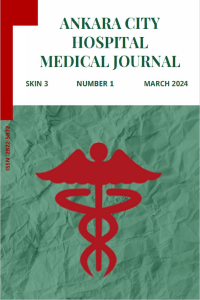Öz
Somalia, a country located in the Horn of Africa, has long grappled with significant healthcare challenges exacerbated by decades of conflict, instability, and underdevelopment. In 2024, despite ongoing efforts to rebuild its healthcare system, Somalia continues to face multifaceted healthcare issues that hinder the delivery of essential services to its population. This report aims to provide an in-depth analysis of the current state of healthcare in Somalia, focusing on challenges, recent advancements, and potential solutions. Somalia’s healthcare system is characterized by a fragile infrastructure, inadequate resources, and a shortage of skilled healthcare professionals. The country’s healthcare services are predominantly provided by non-governmental organizations (NGOs) and international agencies, with limited government capacity to deliver healthcare at the national level. Access to healthcare remains a significant challenge in Somalia, particularly in rural and conflict-affected areas. Factors such as geographic barriers, insecurity, and financial constraints impede individuals’ ability to seek and receive healthcare services.1 Somalia’s healthcare infrastructure is severely underdeveloped, with many healthcare facilities lacking essential resources such as medical equipment, medications, and trained personnel. The quality of healthcare services varies widely across regions, with urban areas generally having better-equipped facilities compared to rural areas. Infectious diseases such as malaria, cholera, and measles continue to pose significant public health threats in Somalia. Weak disease surveillance systems, inadequate access to clean water and sanitation facilities, and population displacement contribute to the spread of communicable diseases.2
Somalia’s maternal and child health indicators are among the poorest globally, with high maternal and child mortality rates attributed to limited healthcare access, and cultural and socio-economic factors. Recent years have seen the emergence of telemedicine and mobile health initiatives in Somalia, leveraging technology to improve access to healthcare services, particularly in remote and underserved areas. Mobile health applications and teleconsultation services enable individuals to receive medical advice and consultations remotely, overcoming barriers to access. International partnerships and humanitarian assistance play a vital role in supporting healthcare delivery in Somalia. Organizations such as the World Health Organization (WHO), UNICEF, and Médecins Sans Frontières (MSF) provide essentialmedical supplies, healthcare training, and support for healthcare facilities in the country. Community-based healthcare initiatives, including community health workers and outreach programs, are instrumental in delivering healthcare services at the grassroots level.3
These initiatives focus on health education, disease prevention, and maternal and child health, addressing healthcare needs within local communities. Investments in healthcare infrastructure, training, and capacity building are crucial for improving healthcare delivery in Somalia, including upgrading facilities, providing resources, and expanding coverage to underserved areas. Training programs in Somalia should enhance clinical skills, promote evidence-based practices, and strengthen healthcare management while empowering communities through health education, mobilization, and participatory decision-making processes. Engaging communities in healthcare planning and implementation ensures that interventions are culturally appropriate and responsive to local needs. Enhancing disease surveillance systems and improving outbreak response capacity are crucial for controlling infectious diseases in Somalia. This includes strengthening laboratory capacity, training healthcare workers in disease surveillance and reporting, and enhancing coordination among healthcare stakeholders. The healthcare challenges facing Somalia are complex and multifaceted, requiring coordinated efforts from the government, civil society, and the international community to address them effectively. By prioritizing investments in healthcare infrastructure, strengthening healthcare systems, and empowering communities, Somalia can make significant strides toward improving healthcare access and outcomes for its population.
Anahtar Kelimeler
Healthcare Disease Prevention Mortality Rates Healthcare Services.
Ayrıntılar
| Birincil Dil | İngilizce |
|---|---|
| Konular | Geleneksel, Tamamlayıcı ve Bütünleştirici Tıp (Diğer) |
| Bölüm | Letter To The Edıtor |
| Yazarlar | |
| Yayımlanma Tarihi | 29 Mart 2024 |
| Gönderilme Tarihi | 7 Mart 2024 |
| Kabul Tarihi | 12 Mart 2024 |
| Yayımlandığı Sayı | Yıl 2024 Cilt: 3 Sayı: 1 |


